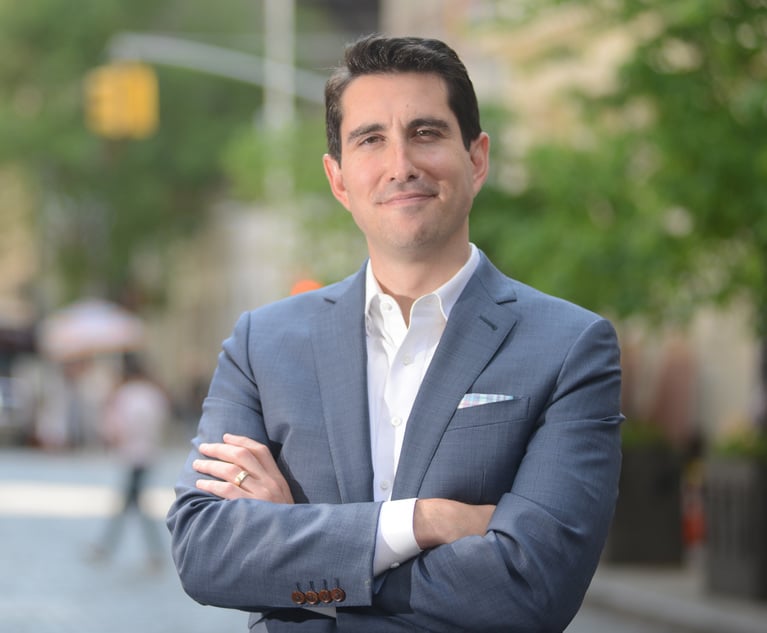Federal Circuit: We'll Interpret the AIA, Not the PTAB
The appellate court says the PTO must use formal notice-and-comment rulemaking—not opinions from the Patent Trial and Appeal Board's Precedential Opinion Panel—if it wants the court to defer to its expertise.
March 18, 2020 at 06:58 PM
5 minute read
 Chief Judge Sharon Prost of the U.S. Court of Appeals for the Federal Circuit.
Chief Judge Sharon Prost of the U.S. Court of Appeals for the Federal Circuit.
The U.S. Court of Appeals for the Federal Circuit has cut short a U.S. Patent and Trademark Office plan for adopting new rules and procedures governing administrative patent challenges.
A Federal Circuit panel flatly refused Wednesday to extend Chevron deference to decisions issued by the Patent Trial and Appeal Board's Precedential Opinion panel.
The immediate impact is that Facebook and the PTO have lost their argument that Facebook should have been excused for missing a deadline to challenge patent claims asserted by Windy City Innovations. More broadly, the decision will force the PTO to use more cumbersome notice-and-comment rulemaking, rather than POP decisions, to enact new procedures implementing the America Invents Act, if it wants them to be partly insulated from Federal Circuit review.
That is, if the rest of the court agrees with the non-binding "additional views" published by Chief Judge Sharon Prost and Judges Kathleen O'Malley and S. Jay Plager at the end of Wednesday's Facebook v. Windy City Innovations.
The case is playing out against the backdrop of a Supreme Court that is increasingly hostile to the idea that Article III courts should defer to executive agency interpretations of statutes. PTO Director Andrei Iancu, who has pledged repeatedly to make Patent Trial and Appeal Board justice more fair and predictable, tried to get out in front of the deference issue by creating the POP panel in 2018.
The PTO argued to the Federal Circuit that Congress formally authorized it to implement the AIA, and that the POP provides notice of its hearings, invites amicus briefs from the public and holds oral hearings, making it comparable to formal notice-and-comment.
The Federal Circuit disagreed. "There is no indication in the [AIA] that Congress either intended to delegate broad substantive rulemaking authority to the Director to interpret statutory provisions through POP opinions or intended him to engage in any rulemaking other than through the mechanism of prescribing regulations," the three judges wrote.
The result is that the Federal Circuit's interpretation of the AIA will control Facebook's dispute with Windy City, not the PTO's expertise on the matter.
Windy City Innovations holds patents from the 1990s on improving privacy and security in a conferencing environment. The four patents it's asserting against Facebook number 830 separate claims. The AIA requires that petitioners bring their validity challenges within one year of being sued for patent infringement.
But Windy City didn't specify which of the 830 claims it would be litigating until after the year ran. Challenging the validity of all 830 claims would have required 30 petitions for inter partes review at a cost of nearly $1 million just for filing, Cooley partner Heidi Keefe argued for Facebook. Instead, the company took the approach many other PTAB petitioners have taken: It challenged the claims it perceived as most perilous in three petitions before the one-year window closed. After Windy City narrowed its district court case, Facebook moved to join five new petitions to its existing PTAB case. The PTAB accepted the joinder and ended up canceling some patent claims while upholding others.
The PTAB's rank-and-file administrative judges have long disagreed about whether joinder is an acceptable end around the one-year time bar. Once the PTAB institutes IPR proceedings, the AIA gives the PTO director discretion to "join as a party … any person who properly files a petition" within 30 days. The dispute is over whether that means a party can join its own proceedings. Even in Facebook's case, two of the three judges on its panel said they disagreed with the agency's interpretation.
The Precedential Opinion Panel settled the issue in a separate case in March. PTAB Chief Judge Scott Boalick wrote in Proppant Express Investments v. Oren Technologies that the AIA permits parties to join their own litigation, but that the PTAB would allow it only in limited circumstances, such as in the case of gamesmanship. Iancu and Commissioner of Patents Drew Hirshfeld concurred.
The Federal Circuit essentially overruled both the Facebook and Proppant decisions Wednesday. The court ruled that the provision allowing the director to "join as a party … any person" to an IPR clearly does not mean a party can join its own IPR.
"A statute saying that 'a person may marry any person who is older than 16 … ' would not, by virtue of the 'any person' language, authorize marriage to oneself," Prost wrote in the opinion for the court.
And in any event, even if Facebook could join its own IPR, it could not bring the proceedings along with it from its second-filed IPR, Prost wrote.
Facebook argued that without the joinder rule, patent owners will be incentivized to run out the clock on the one-year bar before identifying its asserted claims. Prost wrote that she did not disagree, and that it seemed likely that Congress simply hadn't contemplated this scenario when drafting the AIA. But accused infringers should address those concerns to Congress, she wrote. In the meantime, they can file IPR petitions challenging all of the claims identified in a complaint, or save their validity challenges for the district court litigation.
Brown Rudnick partner Vincent Rubino had the winning argument for Windy City.
Ropes & Gray partner Scott McKeown wrote on his firm's Patents Post-Grant blog that POP decisions, whether accorded deference or not, remain valuable for practitioners by providing consistency in PTAB practices until a given issue can be reviewed by the Federal Circuit. "As such, I would not expect the POP to simply fold up shop," he wrote.
This content has been archived. It is available through our partners, LexisNexis® and Bloomberg Law.
To view this content, please continue to their sites.
Not a Lexis Subscriber?
Subscribe Now
Not a Bloomberg Law Subscriber?
Subscribe Now
NOT FOR REPRINT
© 2025 ALM Global, LLC, All Rights Reserved. Request academic re-use from www.copyright.com. All other uses, submit a request to [email protected]. For more information visit Asset & Logo Licensing.
You Might Like
View All
Crypto Entrepreneur Claims Justice Department’s Software Crackdown Violates US Constitution
4 minute read
Kraken’s Chief Legal Officer Exits, Eyes Role in Trump Administration
3 minute read
Crypto Exchange’s ‘Meteoric Rise’ Leads to Nationwide Class Action Trend
4 minute read
Law Firms Mentioned
Trending Stories
- 1Reviewing Judge Merchan's Unconditional Discharge
- 2With New Civil Jury Selection Rule, Litigants Should Carefully Weigh Waiver Risks
- 3Young Lawyers Become Old(er) Lawyers
- 4Caught In the In Between: A Legal Roadmap for the Sandwich Generation
- 5Top 10 Developments, Lessons, and Reminders of 2024
Who Got The Work
J. Brugh Lower of Gibbons has entered an appearance for industrial equipment supplier Devco Corporation in a pending trademark infringement lawsuit. The suit, accusing the defendant of selling knock-off Graco products, was filed Dec. 18 in New Jersey District Court by Rivkin Radler on behalf of Graco Inc. and Graco Minnesota. The case, assigned to U.S. District Judge Zahid N. Quraishi, is 3:24-cv-11294, Graco Inc. et al v. Devco Corporation.
Who Got The Work
Rebecca Maller-Stein and Kent A. Yalowitz of Arnold & Porter Kaye Scholer have entered their appearances for Hanaco Venture Capital and its executives, Lior Prosor and David Frankel, in a pending securities lawsuit. The action, filed on Dec. 24 in New York Southern District Court by Zell, Aron & Co. on behalf of Goldeneye Advisors, accuses the defendants of negligently and fraudulently managing the plaintiff's $1 million investment. The case, assigned to U.S. District Judge Vernon S. Broderick, is 1:24-cv-09918, Goldeneye Advisors, LLC v. Hanaco Venture Capital, Ltd. et al.
Who Got The Work
Attorneys from A&O Shearman has stepped in as defense counsel for Toronto-Dominion Bank and other defendants in a pending securities class action. The suit, filed Dec. 11 in New York Southern District Court by Bleichmar Fonti & Auld, accuses the defendants of concealing the bank's 'pervasive' deficiencies in regards to its compliance with the Bank Secrecy Act and the quality of its anti-money laundering controls. The case, assigned to U.S. District Judge Arun Subramanian, is 1:24-cv-09445, Gonzalez v. The Toronto-Dominion Bank et al.
Who Got The Work
Crown Castle International, a Pennsylvania company providing shared communications infrastructure, has turned to Luke D. Wolf of Gordon Rees Scully Mansukhani to fend off a pending breach-of-contract lawsuit. The court action, filed Nov. 25 in Michigan Eastern District Court by Hooper Hathaway PC on behalf of The Town Residences LLC, accuses Crown Castle of failing to transfer approximately $30,000 in utility payments from T-Mobile in breach of a roof-top lease and assignment agreement. The case, assigned to U.S. District Judge Susan K. Declercq, is 2:24-cv-13131, The Town Residences LLC v. T-Mobile US, Inc. et al.
Who Got The Work
Wilfred P. Coronato and Daniel M. Schwartz of McCarter & English have stepped in as defense counsel to Electrolux Home Products Inc. in a pending product liability lawsuit. The court action, filed Nov. 26 in New York Eastern District Court by Poulos Lopiccolo PC and Nagel Rice LLP on behalf of David Stern, alleges that the defendant's refrigerators’ drawers and shelving repeatedly break and fall apart within months after purchase. The case, assigned to U.S. District Judge Joan M. Azrack, is 2:24-cv-08204, Stern v. Electrolux Home Products, Inc.
Featured Firms
Law Offices of Gary Martin Hays & Associates, P.C.
(470) 294-1674
Law Offices of Mark E. Salomone
(857) 444-6468
Smith & Hassler
(713) 739-1250










